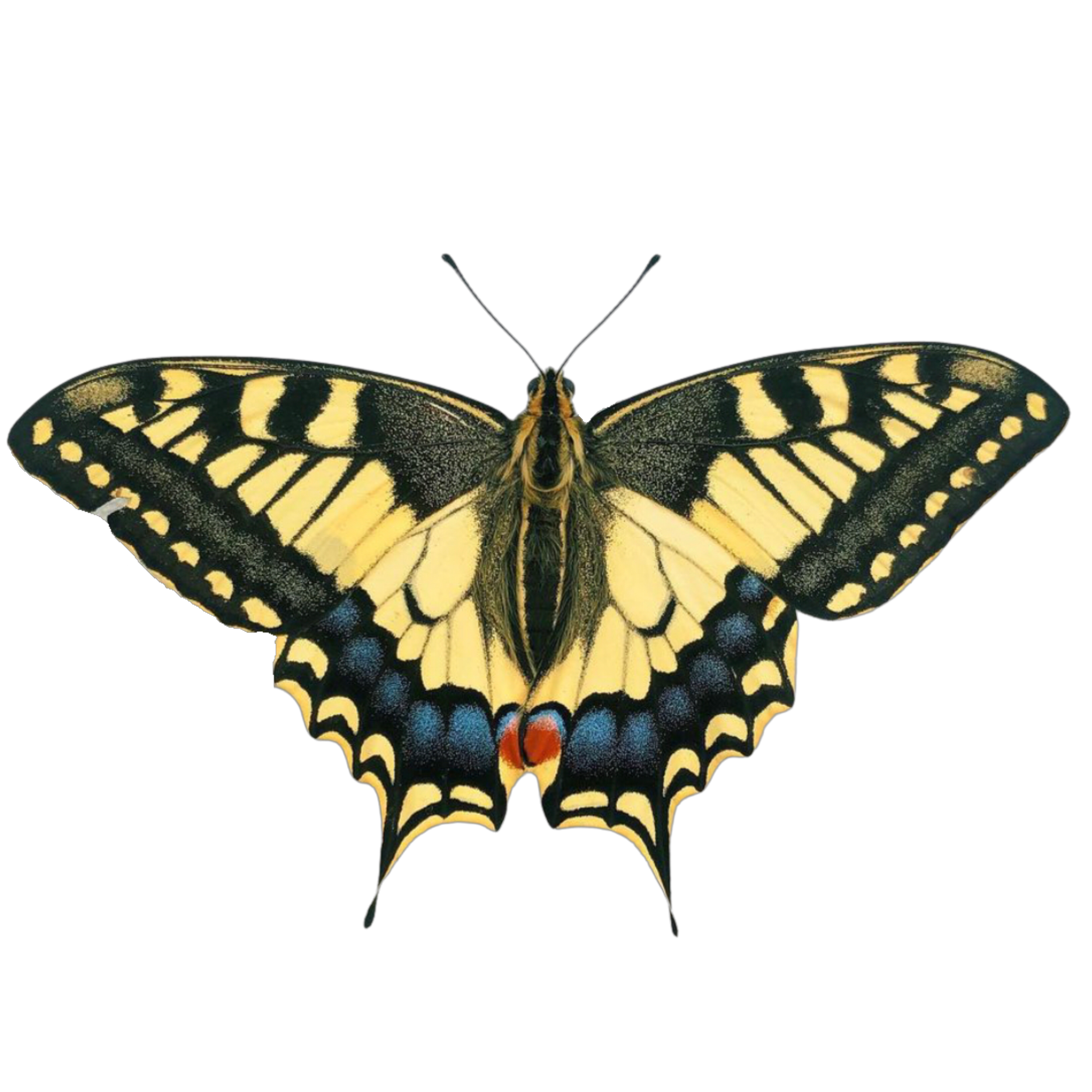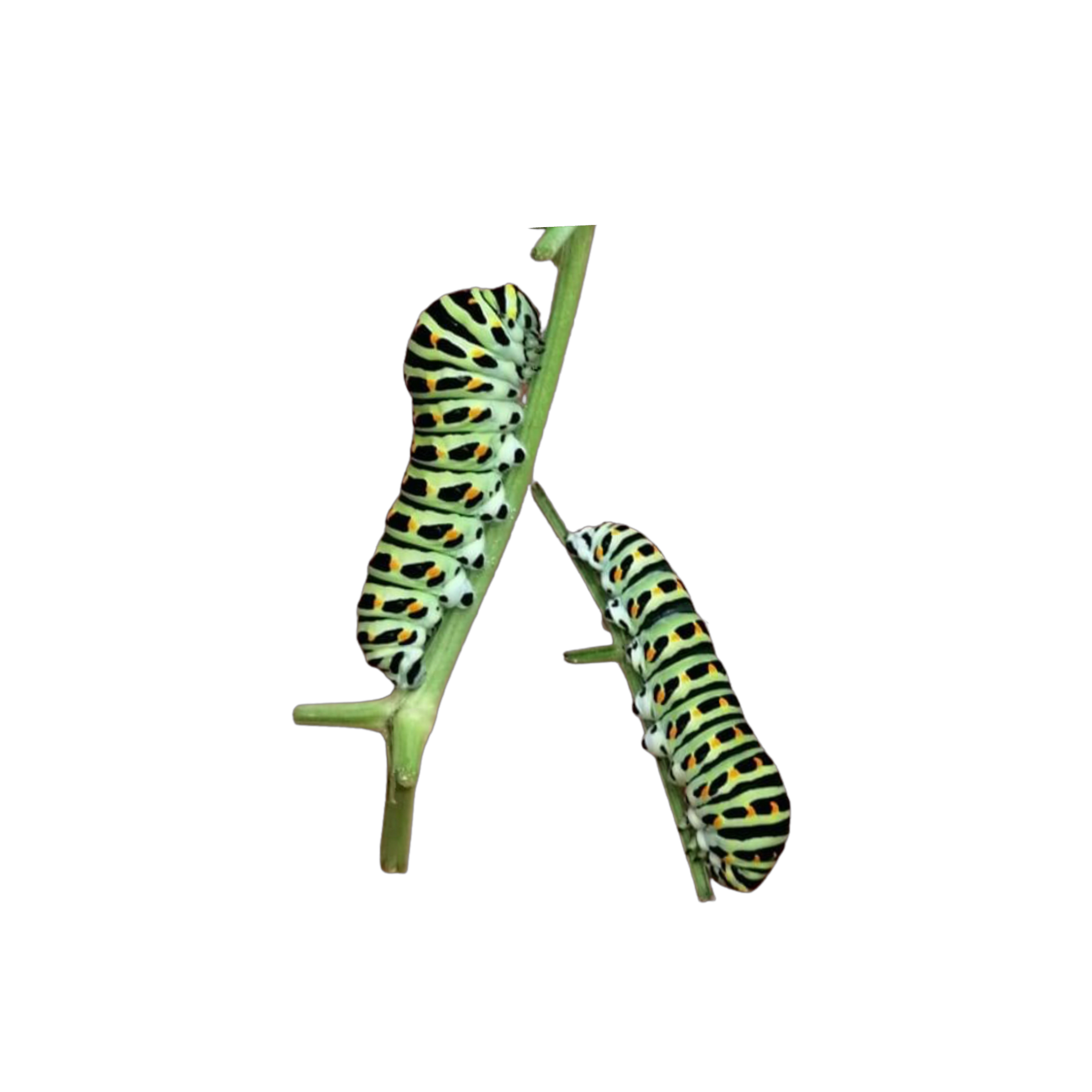Papilio machaon EGGS
This is not the native subspecies (brittannicus) and therefore should not be released into the wild.
Known as European or Old World Swallowtails, Papilio machaon is one of the largest and most striking butterflies found in western Europe. It has a vast range, covering essentially all of Europe and spreading into the near east and temperate Asia - and exists throughout much of North America with various subspecies. The subspecies brittannicus occurs solely in the UK and is currently restricted to a small range in the Norfolk Fens, however the mainland European subspecies gorganus has been recorded summering in the British Isles for centuries and in the last few years has become a resident subspecies, overwintering here as pupae. The adult butterflies are simple to care for, essentially as for any other swallowtail, however caterpillars are sensitive to their environment, food, and other extraneous factors that can make them challenging to rear. Therefore, eggs and caterpillars of this species are not suitable for beginners, however pupae should present no challenges if you simply wish to observe the adult butterfly.
Host plants: Fennel, Dill, Parsley, Rue, Carrot, Parsnip (and their wild counterparts)
Difficulty: Caterpillars can be difficult (6/10); pupae and butterflies are very easy (1/10)
Temperature: Room temp. for caterpillars and pupae; adults may enjoy warmth but sunshine/bright conditions more important
Lifecycle: two or three broods normally, but continually brooded in some regions; pupae overwinter
This is not the native subspecies (brittannicus) and therefore should not be released into the wild.
Known as European or Old World Swallowtails, Papilio machaon is one of the largest and most striking butterflies found in western Europe. It has a vast range, covering essentially all of Europe and spreading into the near east and temperate Asia - and exists throughout much of North America with various subspecies. The subspecies brittannicus occurs solely in the UK and is currently restricted to a small range in the Norfolk Fens, however the mainland European subspecies gorganus has been recorded summering in the British Isles for centuries and in the last few years has become a resident subspecies, overwintering here as pupae. The adult butterflies are simple to care for, essentially as for any other swallowtail, however caterpillars are sensitive to their environment, food, and other extraneous factors that can make them challenging to rear. Therefore, eggs and caterpillars of this species are not suitable for beginners, however pupae should present no challenges if you simply wish to observe the adult butterfly.
Host plants: Fennel, Dill, Parsley, Rue, Carrot, Parsnip (and their wild counterparts)
Difficulty: Caterpillars can be difficult (6/10); pupae and butterflies are very easy (1/10)
Temperature: Room temp. for caterpillars and pupae; adults may enjoy warmth but sunshine/bright conditions more important
Lifecycle: two or three broods normally, but continually brooded in some regions; pupae overwinter
This is not the native subspecies (brittannicus) and therefore should not be released into the wild.
Known as European or Old World Swallowtails, Papilio machaon is one of the largest and most striking butterflies found in western Europe. It has a vast range, covering essentially all of Europe and spreading into the near east and temperate Asia - and exists throughout much of North America with various subspecies. The subspecies brittannicus occurs solely in the UK and is currently restricted to a small range in the Norfolk Fens, however the mainland European subspecies gorganus has been recorded summering in the British Isles for centuries and in the last few years has become a resident subspecies, overwintering here as pupae. The adult butterflies are simple to care for, essentially as for any other swallowtail, however caterpillars are sensitive to their environment, food, and other extraneous factors that can make them challenging to rear. Therefore, eggs and caterpillars of this species are not suitable for beginners, however pupae should present no challenges if you simply wish to observe the adult butterfly.
Host plants: Fennel, Dill, Parsley, Rue, Carrot, Parsnip (and their wild counterparts)
Difficulty: Caterpillars can be difficult (6/10); pupae and butterflies are very easy (1/10)
Temperature: Room temp. for caterpillars and pupae; adults may enjoy warmth but sunshine/bright conditions more important
Lifecycle: two or three broods normally, but continually brooded in some regions; pupae overwinter





